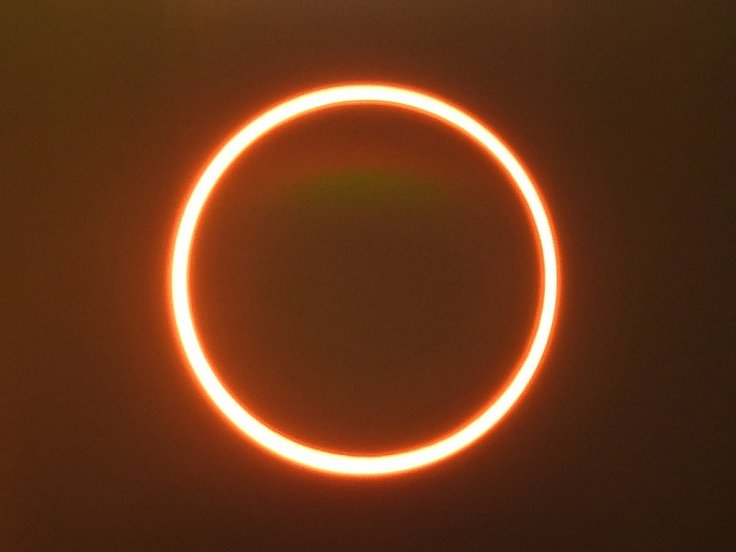One of the most extraordinary celestial phenomena is about to be visible to people in some parts of Asia Africa on June 21. Known as the annular solar eclipse, it's not a typical spectacle that is visible every year. In this, the Moon will partially block the Sun — about 99.4 percent — allowing sunlight to escape through its edges and creating a ring of fire.
Although, only for 30 seconds or so, the Sun will appear as if it is wearing a necklace, thus getting the moniker. The name annular comes from the Latin word 'annulus' means ring. It happens when the Moon is farthest away from the Earth in its orbit. Thus, it appears to be smaller than the Sun.
Narrow Path
While the annular solar eclipse happens every year or two, it has a narrow projection path. In West Africa, it has the widest path of about 85 kilometers and the annularity lasts for about a minute and a half. In Uttarakhand, India, the projection path is the narrowest at about 21 kilometers and the solstice lasts only for 38 seconds or so but this is when the ring of fire will be at its spectacular best.
For the rest of the countries on the path line, it will be a partial solar eclipse. However, all of that depends on the clear sky. The eclipse begins at 03:45 UTC on June 21, which is also the longest day of the year on the northern hemisphere — the summer solstice. The next annular solar eclipse will be in June 2021 but it will be mostly visible from the Arctic. The next solar eclipse will be on December 14 but it will be a full eclipse as the Moon will block the Sun entirely for a few minutes.
Where to Watch If Sky Isn't Clear
For any eclipse, clear sky and good weather are key factors. However, if you miss it, YouTube channels of Timeanddate.com, Slooh, Cosmo Sapiens, Indian Institute of Astrophysics through its Ladakh Observatory among others will get you watch the event. The same goes for people who are under lockdown in some of the cities across the globe due to the ongoing Coronavirus pandemic.
For people, who are able to witness the rare phenomenon, watching it through naked eyes will be dangerous as Sun's UV rays are harmful. Specialized glass for watching the eclipse is recommended but x-ray plates and dark sunglasses with UV ray protection can also be used.

"The sun is so bright that even when there's only a tiny portion visible, it is still dangerous for the eyes," said astrophysicist Fred Espenak, who is also an expert on eclipse prediction, on NASA website.









